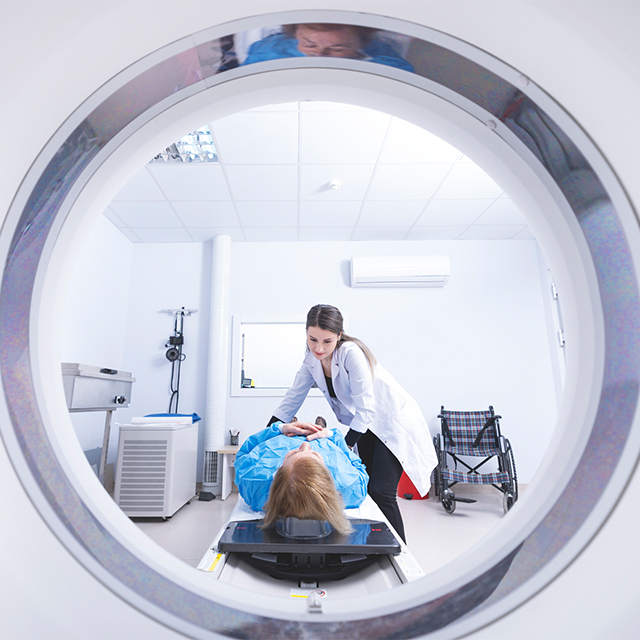Learning that you have a pituitary abnormality can be scary. Here is what to know as you prepare for a visit to your healthcare provider.
“Pituitary tumor.” Your head MRI or CT showed an abnormality and you’re wondering what’s next. First of all, it’s important to know that these kinds of abnormalities are common and may not require any medical or surgical treatment. In other cases, people who have a pituitary abnormality are referred to a specialist for a detailed evaluation.
“One important statistic is that up to 20 percent of people have an abnormality in their pituitary gland,” said Dr. Andrea Utz, an endocrinology specialist with Vanderbilt Health and the director of Vanderbilt’s Pituitary Center. “Almost all of them are small abnormalities, less than 10 millimeters, that do not make extra hormone or cause gland dysfunction. Most of these do not require any treatment.”
Of course, there are exceptions: Some abnormalities may be large enough to press on important structures around the pituitary, like the nerves to the eyes, and some may affect the levels of the pituitary hormones in the body. The job of the specialist is to help determine what kind of abnormality you have, and whether yours will require treatment.
Here is what you need to know before your first appointment with a pituitary specialist.
A pituitary abnormality is not a brain tumor.
“I devote the first several minutes with any new patient to trying to allay fear,” Utz said. “The first thing that is important to know is that very rarely do abnormalities within the pituitary indicate a cancer — they are almost always benign. Secondly, the pituitary gland is a gland within your head that is below your brain. It is not actually part of your brain, so a patient does not have a brain tumor, they have a gland tumor.”
The majority of pituitary gland tumors are non-functioning.
This means that the abnormality does not produce extra hormone. Those that are less than 10 millimeters in size are small enough to not cause any symptoms, and do not require any intervention apart from potential follow-up imaging to ensure there is no significant change in size.
Some large non-functioning pituitary abnormalities cause a decline in vision and can lower some pituitary hormone levels. Many of these will need treatment. Lab testing is used to decide if surgery or medicine is the best treatment.
Pituitary gland tumors are rarely the cause of headaches.
While headaches are a common reason for MRIs to be ordered, pituitary abnormalities are rarely the cause of headaches, particularly if they are small.
Blood and other lab testing will be required to evaluate your abnormality.
“I typically have three questions to answer for patients who have been diagnosed with a pituitary tumor,” Utz said. “Number one: Do they have an abnormality large enough that it is putting pressure on the important structures surrounding it, like the eye nerves? Number two: Is there any indication that the abnormality is making too much pituitary hormone? And Number three: Is there evidence that the abnormality is preventing the pituitary from making its normal hormonal products?”
Specialists usually address these questions through blood testing, though sometimes additional urine or saliva testing is needed. When the results are available, they typically provide a roadmap for your provider.
If your test results indicate need for treatment, you will need a coordinated plan of care.
If yours is a functioning tumor or is a relatively large abnormality, treatment may be necessary. If the abnormality is a prolactinoma (a non-cancerous pituitary tumor that produces too much hormone), it will likely be treated with medication. All other functioning or large tumors are generally first treated with pituitary surgery.
If surgery is recommended, it is best to find a pituitary center that coordinates care between endocrinology and neurosurgery, Utz said. “At VUMC, a new patient is scheduled to see these specialists usually the same day,” she explained. “We meet and discuss every patient who comes to the pituitary clinic and then together we make a plan to ensure care is as smooth and coordinated as possible.”

Pituitary disorders can disrupt the regulation of many hormone systems in the body, which can affect your health in many ways. Vanderbilt’s Pituitary Center provides comprehensive, long-term treatment and care for adults with pituitary disorders.




